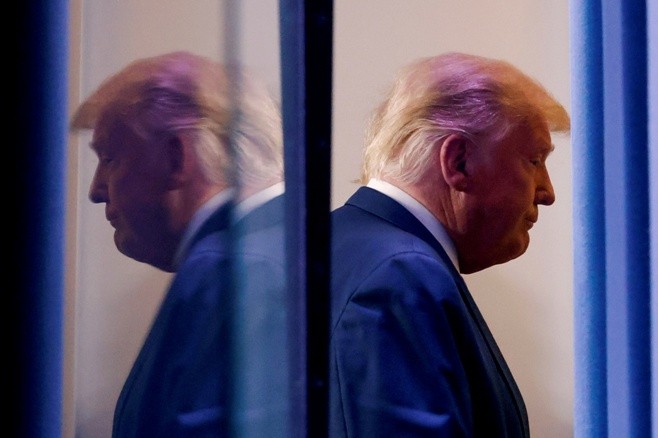What Happens If Trump Refuses to Concede Defeat?

After the election was called for former vice president Joe Biden on Saturday, President Donald Trump expressed refusal to accept defeat. But what happens if he doesn't concede?
The Democratic nominee took over Trump in the battleground state of Pennsylvania on Saturday, securing him the win.
He added that if Trump refuses to walk out of the White House, he will be escorted out "with great dispatch," reported The Independent.
According to National Geographic, no modern president has ever refused concession even after all votes were counted, and legal challenges were resolved.
If Trump decides to not concede at all, it would be a historic first for the United States.
The General Services Administration
When it comes to matters regarding the transition, the power of the General Services Administration, or GSA, seemed to be something Americans have largely ignored.
This agency enables the transfer of power from one administration to the next one and controls the taxpayer money that goes towards it, according to WSB-TV Atlanta.
As per a 1963 law, the GSA has a politically appointed administrator, currently Trump appointee Emily Murphy, who decides when a winner is "ascertained."
When that happens, federal agencies can open their doors and provide funding for the president-elect and his team. The incoming will have about two months to prepare itself before the inauguration day on January 20.
Related Story: US Election Explainer: What Happens Between Now and President-Elect Biden's Inauguration?
Losing candidates, who are usually part of the government, commonly attend these events. But it's unclear if Trump will do that or not.
When the GSA administrator "ascertains" a candidate is a winner, she doesn't decide who gets to be president. The voters do.
If Murphy believes the results are evident enough to trigger a transition of power, she decides when the new office will be given keys to the transition. This includes a $9.9 million funding to build a new administration, including vetting an entirely new Cabinet.
Usually, ascertainment happens once news organizations call a winner or when the loser concedes.
There are no particular criteria to ascertain a winner. But the idea is for the government to move quickly, so the new candidate isn't scrambling to organize itself when it takes over.
According to WSB-TV, an ascertainment has not yet been made as per GSA Press Secretary Pamela Pennington in a statement Saturday.
"GSA and its Administrator will continue to abide by, and fulfill, all requirements under the law," Pennington assured.
When asked if the GSA was waiting for a concession from Trump to ascertain, Pennington reiterated that it would be done "once a winner is clear based on the process laid out in the Constitution."
Trump Doesn't Need to Concede
Before, during the country's first 100 years or so, conceding wasn't even part of the election process. In fact, it's not part of the law. It's a custom, noted CNN.
It's merely the classy thing to do if one was a losing candidate. It usually signals that, amid a divisive campaign, the country is ready to come together.
Related Story : Trump Keeps Up Fight as Family Spars Over Concession
There are usually two elements to a concession speech: a call to the winner and a candidate's speech to his supporters. As for what Trump will do in the coming weeks, America will just have to wait it out.
The Constitution made no mention of how to remove a president if they lose and refuse to hand over the power. So it's uncertain if law enforcement may have to be involved in removing Trump once Biden is ascertained.
Subscribe to Latin Post!
Sign up for our free newsletter for the Latest coverage!
© 2026 Latin Post. All rights reserved. Do not reproduce without permission.













